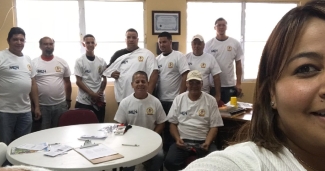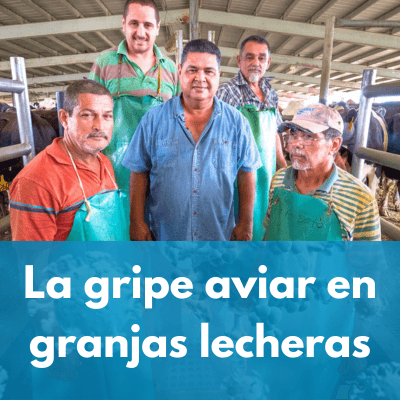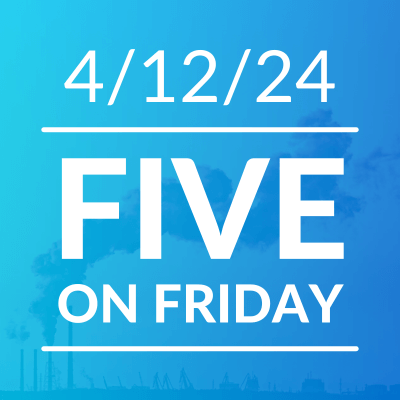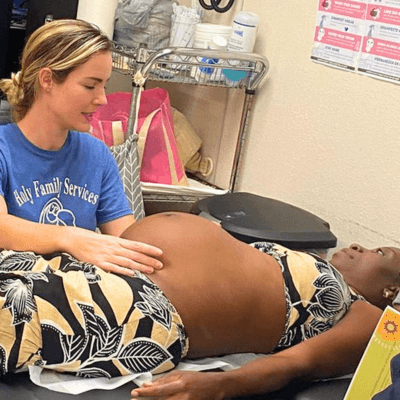In the Field: Jayuya Outreach Workers Provide Chemical Safety
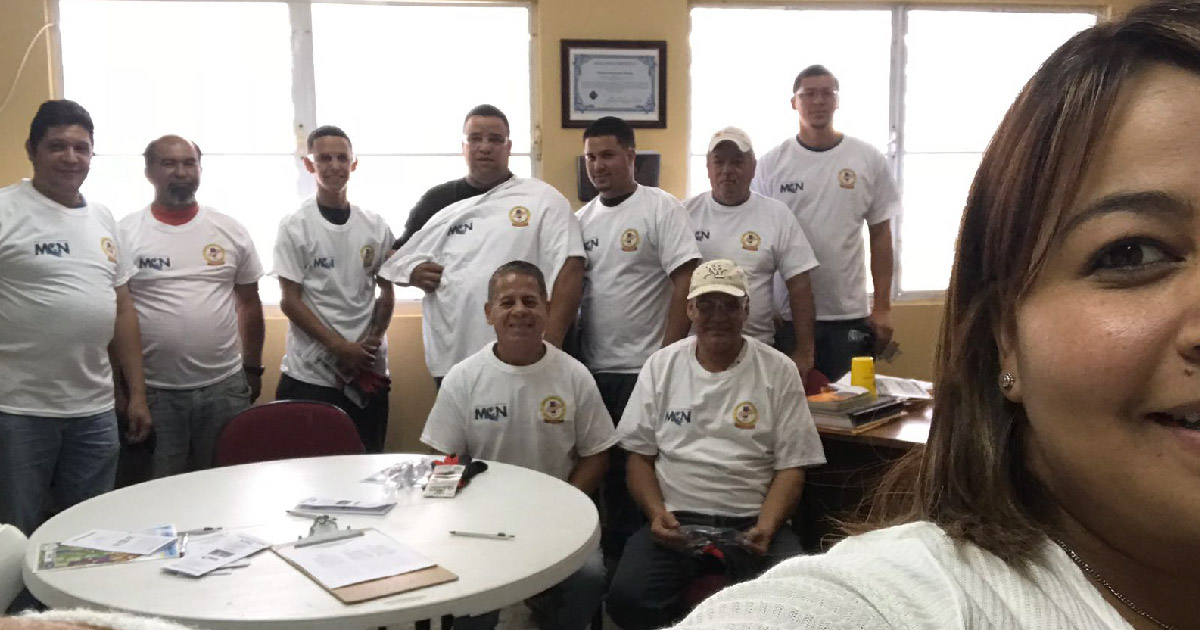
[Editor’s Note: We’re celebrating the work of outreach teams in the Castañer region of Puerto Rico! Three different teams headed out to the streets this summer to provide comprehensive trainings on chemical safety for workers. Here is an update from the team in Jayuya. Read the first blog post here and the second one here.]
With the commitment to promote a safe and healthy work environment, the Castañer Polyclinic in Jayuya, Puerto Rico is raising awareness among many different groups of workers about the proper use of personal protective equipment and on safety measures in the face of exposure to chemicals and the risk of occupational injury. The excellent team made up of Angee Inés Correa-Rivera (Outreach) and Pedro Javier Núñez-Rosario (Promotor de Salud) visited and trained workers in different places in Jayuya, including at coffee plantations, restaurants, school cafeterias, bakeries, funeral homes, beauty salons, health service centers, laboratories, construction companies, garbage collection and recycling services, for a total of 153 participants. To best take into account the needs of the workers and their daily working realities, we often provided the chemical safety training at their respective areas of work.
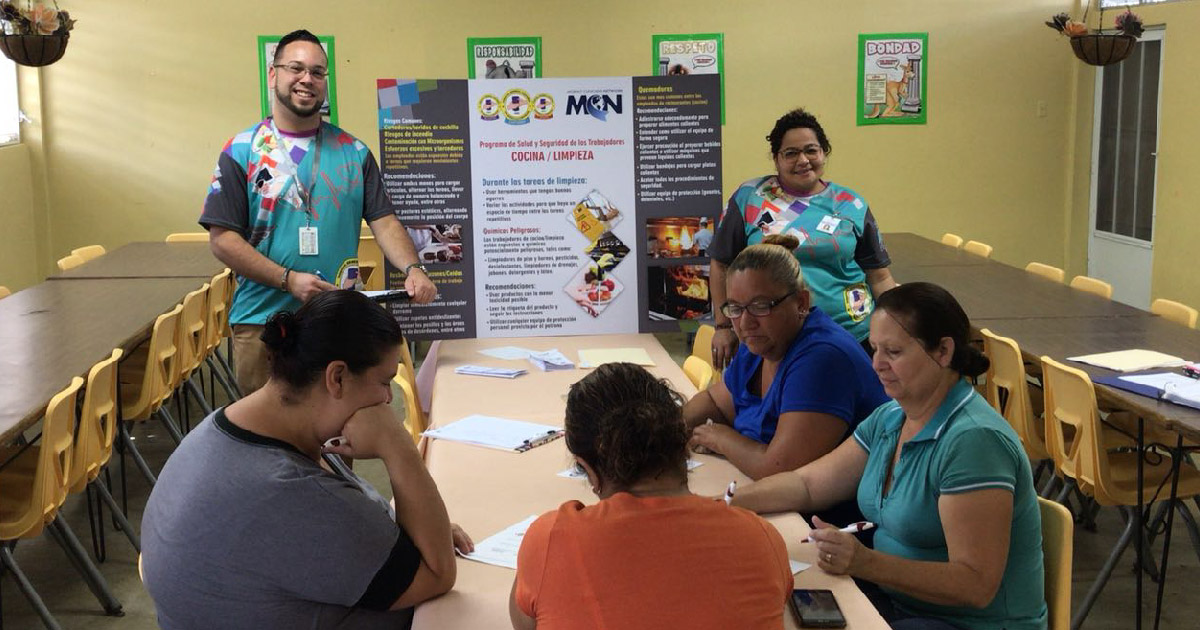
It was a rewarding experience to learn about their concerns, their experiences, and the risks of exposure that they face or have faced, which confirmed the importance of these trainings. While we were grateful that employers gave us the opportunity to speak with their employees, the on-site trainings were our biggest challenge. Some of the employers allotted us a very limited time, so we had to make adjustments to present the material briefly without losing the quality and scope of it. As a demonstration of our success, we want to highlight that we trained around 37 different labor communities. The majority of them, although able to demonstrate basic knowledge about chemical exposure risk, did not demonstrate clear understanding of the health implications.
How were able to reach such diverse work groups?
In order to reach all these groups of workers, we established a work plan. First, we spent a few weeks identifying the possible places where we could take the trainings. Then, we prepared all the literature according to the work area. Finally, we established dates with the employers. It is worth mentioning that we have not limited ourselves to just reaching our goal; rather, we continue to be available to those identified employees to provide these trainings as they are of vital importance.
How did you determine who to give the trainings to?
After having been trained to provide these trainings on safety with chemicals to different workers, we identified garbage and recycling collectors as a first group, considering them a vulnerable group in terms of exposure to chemicals. These workers are the ones who keep our streets clean and therefore are exposed to all types of chemicals. As part of our work plan, we not only provide them with information, but we also provide these workers with personal protective equipment such as reflective vests, safety glasses, and gloves. After offering this first training, we realized a lack of information exists in many other work environments so we decided not to limit ourselves to this type of workers, but rather to open ourselves to different employments, including funeral homes, restaurants, beauty salons, construction companies, etc. We decided to do it this way when we realized that even though some workers had some basic knowledge around chemical exposure, they did not know the risks of those exposures, including the short- and long-term effects that exposure to chemicals can bring.
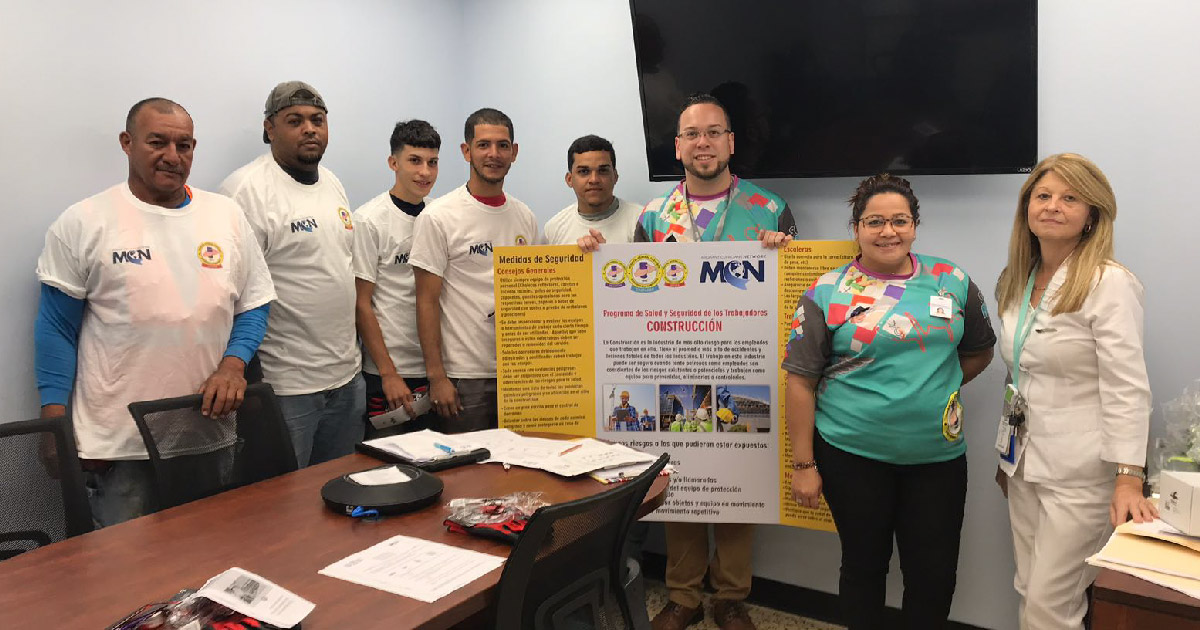
How did you adapt the educational materials for each type of worker?
In order to educate each type of worker according to their respective areas of work, we prepared information and designed posters, brochures, flyers, and powerpoint presentations, among other resources [specific to the profession].
Can you share a story about a worker who you trained?
As part of this project, we provided a training at a funeral home, where one of the workers shared his concern on seeing how his colleagues, throughout their professional career, used little or no personal protection equipment while embalming corpses. Our experience in this place was very enriching given that this worker shared some experiences and knowledge that helped us expand our vision on this issue. He also explained all of his safety protocol when exposed to chemicals in his work area. The participant was pleased and grateful that we had this initiative and that we were to visit funeral homes.
We also provided a training to firefighters in Jayuya. This was one of the experiences in which, not only did we provide a training, but we also received guidance from the fire department as to the protocol when they receive an emergency call regarding chemical exposure. They shared that each chemical has a different protocol to follow, [that changes the roles of] the protection team and the personnel that respond to the emergency. In this case they were also grateful for our training because it served as a review for them since these cases are not common.
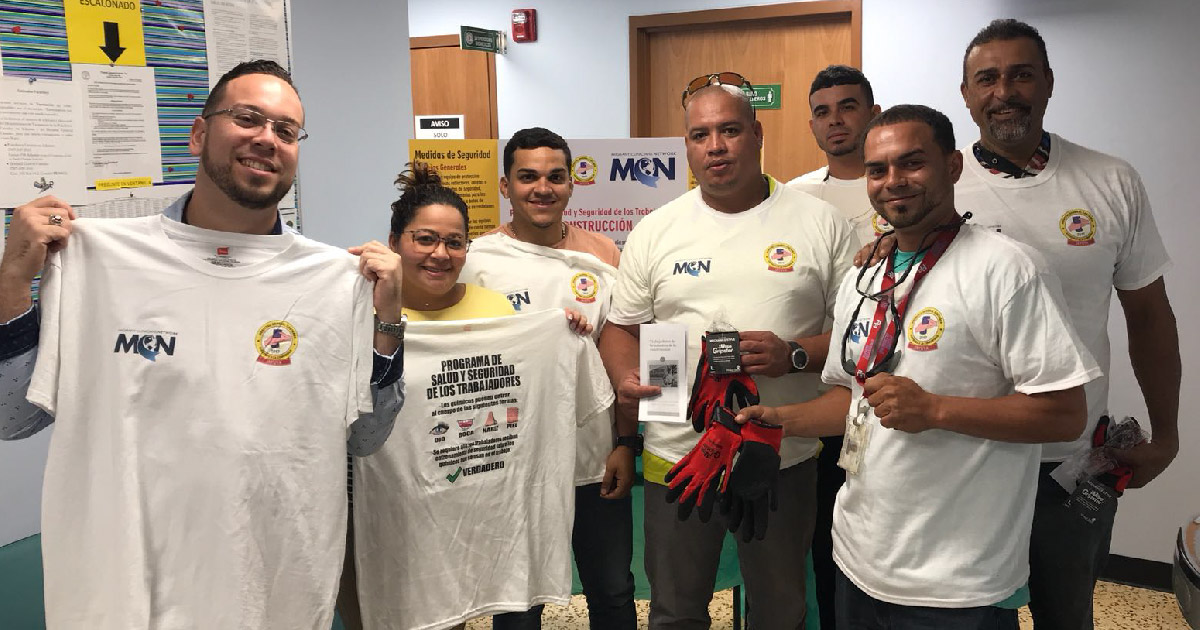
How did the workers respond to the information you gave them?
The majority of the trained workers reacted in a receptive and positive way to the recommendations and the information that was offered to them. For many it served as a review, since they knew about it, but they had forgotten it over time or they did not put it into practice.
How is the situation in Puerto Rico, and in Jayuya specifically, in terms of people's knowledge about chemical safety?
Based on the training we were offering, we realized that in Jayuya there are many people who know about chemical safety. However, there are very few who implement safety measures either in their work areas or even in their homes. We identified people who did not know the protocol to activate 9-1-1 in case of an emergency with a worker who was injured or who had been exposed to chemicals.
In Jayuya have you had cases of patients with chemical exposures? How frequent are they?
It should be noted that the Castañer Polyclinic in Jayuya does not have an emergency room. At the moment we do not have a registry of patients who have been exposed to chemicals. However, we are available to provide a primary care service in case we receive an exposed worker.
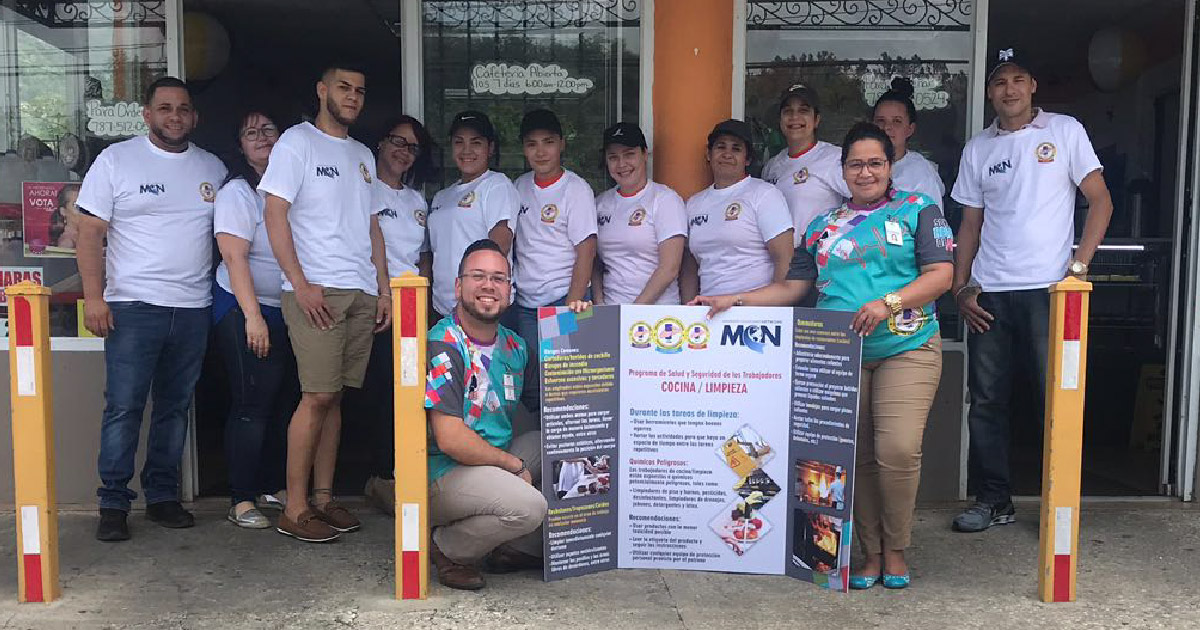
How do you feel as professionals and as people of having participated in this project and working so closely with people?
Angee:
The experience of having participated in this project was a very welcome one. For me it has been a pleasure to be able to reach so many groups of different workers and be an education tool for them. Some of [the workers] shared their experiences when exposed to chemicals, [and] most of the trained workers were receptive to the information that was offered to them. Of the most impressive experiences for me, it was the realization that some of these workers, despite knowing the risks of being exposed to chemicals, did not comply with safety measures, including the avoidance of personal protective equipment. Although we have reached the goal of workers we are available to many employers to continue offering this training in chemical safety, as we realized the importance for each worker to emphasize that each must ensure their own safety. Thank you for the opportunity to be part of this project!
Pedro Javier:
As a Promotor de Salud and Rehabilitation Counselor by profession, it has been a very enriching professional growth experience, since not only did I broaden my perspective and my knowledge about the impact of chemicals on health, safety measures and prevention, but I could see and understand the challenges that workers face every day to bring sustenance to their families. I feel good because I was able to contribute and promote the use of the relevant safety equipment, [help workers] put safety measures into practice, and raise awareness of the importance of protecting ourselves, not because the employer or the laws demand it, but because our health is the most precious thing that we have so we must preserve it and take care of it in order to enjoy a better quality of life in the present and in the future. I thank Migrant Clinicians Network and General Castañer Hospital, Inc. for allowing me to be part of this great initiative and to support these labor communities.
.
Like what you see? Amplify our collective voice with a contribution.
Got some good news to share? Contact us on our social media pages above.
Return to the main blog page or sign up for blog updates here.
- Log in to post comments
